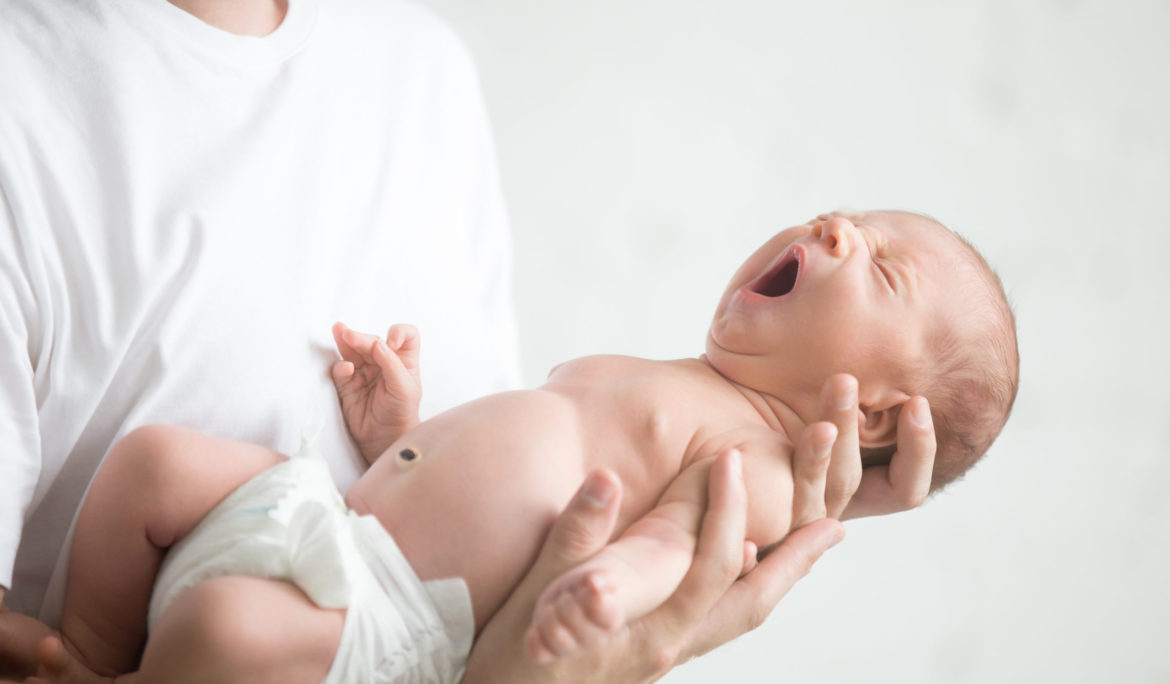Are IVF Babies Healthy?


IVF, or in vitro fertilization, has become a popular treatment option for infertile couples. This assisted reproductive technology has assisted millions of couples worldwide in conceiving and starting families. However, one frequently asked question is whether IVF babies are as healthy as naturally conceived babies.
In this article, we will look at the research and evidence surrounding the health of IVF babies. We examine studies that compare the physical health, development, and well-being of IVF babies to those born naturally. Other factors that may influence a baby’s overall health, such as maternal age, lifestyle habits, and family history, are also investigated.
Findings indicate that IVF babies are no less healthy than naturally conceived babies.


Are IVF babies healthy?
Yes, IVF babies are just as healthy as naturally conceived babies. This means they are not at risk of harming their health in the short or long term.
The safety of the IVF procedure is attributed to the fact that IVF babies are conceived through the use of fertility drugs instead of sexual activity, resulting in no significant differences.
To understand this issue clearly it is important to know the IVF procedure and its difference from normal conception.
To assess the health outcomes of IVF babies, many studies have been done. According to the research, babies born through IVF are generally just as healthy as those born naturally. Over 1.5 million IVF-born children and naturally conceived children were compared for health in a large study that was published in the Journal of the American Medical Association. According to the study, there was no discernible difference between the two groups’ overall health outcomes.
In addition, a different study on adults born via IVF found no evidence of respiratory, metabolic, growth, or heart issues.
In the general fertile population, there is a 3-5 percent chance of having a child with a birth defect. According to the current data, the birth defect rate increases by approximately 1% after an IVF cycle.
In addition, there are a very small number of IVF babies who experience low birth weight, or worse, neonatal death. Researchers have discovered that rather than the IVF procedure itself, these flaws are more dependent on the age and fertility of the parents.
What is the difference between IVF and normal conception?
In natural conception, fertilization takes place in the fallopian tube after sexual activity. The embryo is naturally transported to the uterus and implanted to initiate pregnancy.
During in vitro fertilization (IVF), eggs are collected from the woman’s ovaries and fertilized with sperm in a laboratory. After the embryos are created, they are transferred back into the woman’s uterus for implantation and pregnancy.
The pregnancy phases are the same in both conceptions as soon as the embryo is implanted, whether naturally or artificially, and this is how they both differ.
So, if you closely examine this process, you won’t notice much of a difference between the two. This means that there is absolutely no risk to the health of an IVF baby.
What are the benefits of IVF babies compared to naturally conceived babies?
When it comes to the benefits of IVF babies compared to naturally conceived babies, there are a few key points.
First, IVF can help couples who have been unable to conceive through traditional methods and provides them with an alternative option. and they can freeze their embryos for future use.
Additionally, IVF offers a greater level of control when it comes to the selection and quality of the embryo that is implanted. This means that parents can be assured that the baby is healthy and viable.
IVF can be used to prevent the transmission of genetic disorders from one generation to the next. For those who have a family history of certain conditions, IVF allows them to screen for these before implantation. This helps ensure that the baby will not suffer from any genetic disorders or complications.
IVF also offers couples greater flexibility when it comes to timing and scheduling their pregnancies. With natural conception, couples can only attempt to conceive at the time of ovulation. With IVF, they can plan when to begin treatments and when to transfer embryos for implantation.
Finally, IVF can be used in cases where the woman has an aging uterus or other medical conditions that make traditional conception difficult or impossible.
Factors influence the health of IVF babies
The mother’s health and lifestyle choices, the quality of the egg and sperm used for fertilization, and the overall success rate of IVF treatments are just a few examples of the factors that may affect the health of IVF babies.
In order to guarantee a healthy baby after an IVF cycle, the mother’s health is particularly crucial. A woman’s health issues or genetic disorders may be passed on to the unborn child. Additionally, if a woman smokes or is overweight while pregnant, this may increase the baby’s risk of complications.
The health of an IVF baby is greatly influenced by the quality of the used sperm and eggs. The embryo’s chances of becoming a healthy baby increase with how healthy and viable they are.
Are there any risks associated with IVF?
While IVF is generally a safe procedure, there are some possible complications that may occur. These include an increased risk of multiple births, pre-term labor, and birth defects. Additionally, the hormones used in IVF may lead to some side effects such as nausea, headaches, and mood swings.
It’s important to remember that every pregnancy, whether through IVF or natural conception, carries its own set of risks and challenges. Regular prenatal care and monitoring are crucial for ensuring the health and well-being of both the mother and the baby, regardless of how conception occurred.
Are IVF babies as healthy as naturally conceived babies?
Yes, research suggests that IVF babies are generally as healthy as those conceived naturally. Studies comparing large groups of IVF and naturally conceived children have found no significant differences in their overall health outcomes.
Is there a difference in birth defect rates between IVF babies and naturally conceived babies?
The risk of birth defects is slightly higher in IVF babies compared to naturally conceived babies, with a small increase of approximately 1% over the general population. However, this is often related to factors such as parental age and underlying fertility issues rather than the IVF procedure itself.
What are the benefits of having a baby through IVF?
IVF can help overcome various fertility issues, offering hope to those unable to conceive naturally. It allows for the selection and testing of embryos, which can reduce the risk of genetic diseases. Additionally, IVF provides flexibility in timing and family planning, especially for those with certain medical conditions or life circumstances.
Does the IVF process differ significantly from natural conception?
The main difference between IVF and natural conception is how fertilization occurs. In natural conception, fertilization happens inside the body following sexual intercourse. In IVF, fertilization occurs outside the body in a laboratory setting. However, once an embryo is implanted, the pregnancy progresses in the same manner as a natural conception.
What factors can influence the health of IVF babies?
Several factors can influence the health of IVF babies, including the mother’s health and lifestyle, the quality of eggs and sperm, and the success rate of the IVF procedure itself. Maternal health issues, smoking, and obesity can increase the risk of complications, while the quality of the embryos can impact the chances of a healthy baby.
Are there any risks associated with IVF?
While IVF is generally safe, there are some potential risks and side effects. These can include an increased chance of multiple pregnancies, premature delivery, and ovarian hyperstimulation syndrome due to the fertility drugs used. However, with proper medical care and monitoring, these risks can be managed.
How should one prepare for an IVF procedure?
Preparation for IVF involves several steps, including medical assessments, fertility tests, and discussions about the process with a healthcare provider. Leading a healthy lifestyle, managing stress, and understanding the potential risks and outcomes can also help prepare individuals and couples for IVF.
Can IVF prevent genetic disorders?
IVF can be combined with preimplantation genetic diagnosis (PGD) to screen embryos for specific genetic disorders before they are transferred to the uterus. This can significantly reduce the risk of passing certain genetic conditions to the child.
Is prenatal care different for IVF pregnancies?
Prenatal care for IVF pregnancies is generally the same as for natural pregnancies. However, due to the increased risk of certain complications, more frequent monitoring may be recommended. Regular prenatal visits, a balanced diet, and avoiding harmful substances remain crucial for a healthy pregnancy and baby.
Conclusion
In conclusion, the available research suggests that IVF babies are generally as healthy as naturally conceived babies. However, it is essential to consider individual factors such as parental age and underlying fertility issues that may influence health outcomes. As with any pregnancy, proper prenatal care and regular check-ups are vital for ensuring a healthy outcome for both the parents and the baby.
If you need more information, please contact our team of experts.
References



